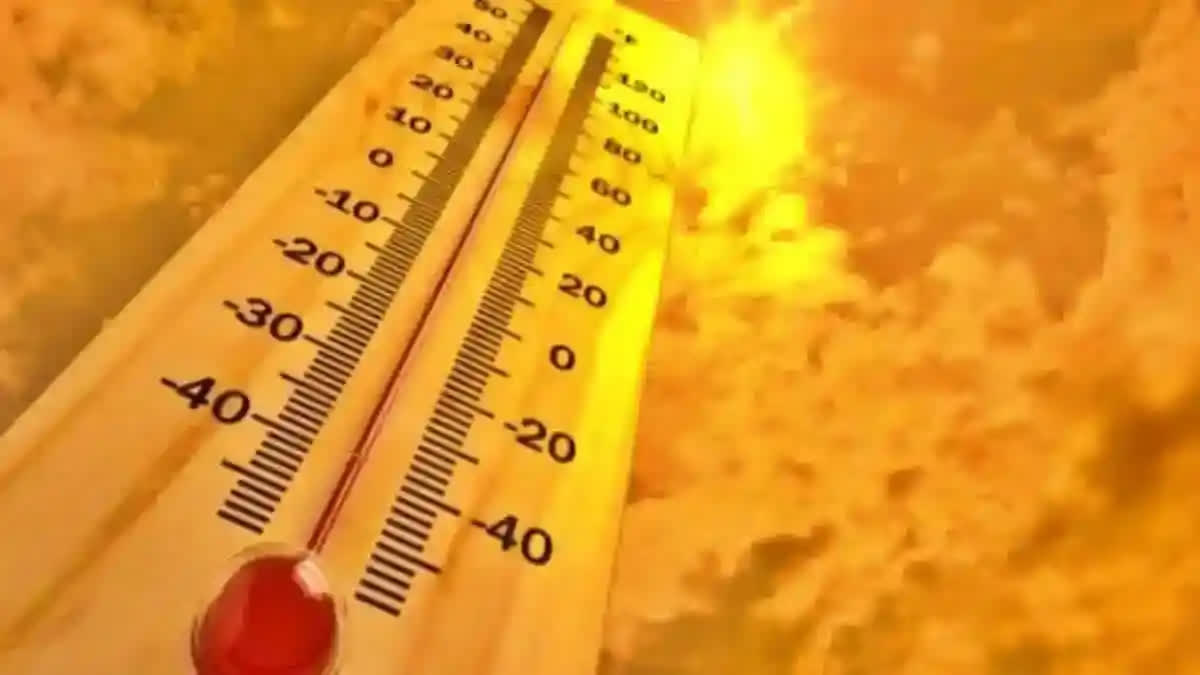New Delhi: The Union Health Ministry on Wednesday said that infants and young children, people working outdoors, pregnant women, people, who have a mental illness, physically ill, especially those with heart disease or high blood pressure are at greater risk of heat wave. Issuing a public health advisory given the heatwave, the health ministry further said that travellers from colder climates to a hot climate should allow one week for their bodies to acclimatize to heat, avoid overexertion and drink plenty of water.
“Acclimatization is achieved by gradual increase (over 10-15 days) in exposure and physical activity in hot environments,” the advisory said. It, however, said that anyone at any time can suffer from heat stress and heat-related illness. The advisory further suggested that elderly or sick people living alone should be supervised and their health monitored daily. “Keep your home cool, use curtains, shutters or sunshades and open windows at night. Try to remain on lower floors during the day. Use a fan, spray bottles, damp cloths and ice towels to cool down your body. Immersing feet in 20°C water above the ankle provides rapid cooling by reducing dehydration and thermal discomfort,” the advisory stated.
Stay hydrated
Drink sufficient water whenever possible, even if you are not thirsty. Thirst is not a good indicator of dehydration. Carry drinking water when travelling. Use Oral Rehydration Solution (ORS), and consume homemade drinks like lemon water, buttermilk and lassi and fruit juices with some added salt. Eat seasonal fruits and vegetables with high water content like watermelon, muskmelon, orange, grapes, pineapple, cucumber, lettuce or other locally available fruits and vegetables.
Stay covered
Wear thin loose, cotton garments preferably light coloured. Cover your head with the help of an umbrella, hat, cap, towel and other traditional headgear during exposure to direct sunlight. Wear shoes or chappals while going out in the sun.
Stay indoors/in the shade as much as possible
Stay in well-ventilated and cool places. Block direct sunlight and heat waves. Keep windows and curtains closed during the day, especially on the sunny side of your house. Open them up at night to let cooler air in. If going outdoors, limit your outdoor activity to cooler times of the day preferably in the morning and evening. Reschedule or plan outdoor activities during cooler parts of the day.
Avoid venturing out during heatwave
Avoid getting out in the sun, especially between 12 pm and 3 pm. Avoid strenuous activities when outside in the afternoon. Do not go out barefoot. Avoid cooking during peak summer hours. Open doors and windows to ventilate the cooking area adequately. Avoid alcohol, tea, coffee and carbonated soft drinks or drinks with large amounts of sugar as these lead to loss of more body fluid or may cause stomach cramps. Avoid high-protein food and do not eat stale food. Do not leave children or pets in parked vehicles. The temperature inside a vehicle could get dangerous.
Precautions during mass gatherings and sports events
Outdoor and indoor crowded situations increase the risk of acute heat-related illnesses (HRI) even in the absence of active heatwave alerts in the area. Physical exertion, direct sun exposure, overcrowding and difficult access to water, food and shade may worsen health in vulnerable groups. Attendees should stay hydrated, and cool, be aware of HRI signs, and symptoms and seek medical care. Heat-related illnesses include (from mild to severe) ̶heat rash (prickly heat), heat oedema (swelling of hands, feet and ankles), heat cramps (muscle cramps), heat tetany, heat syncope (fainting), heat exhaustion, and heat stroke.
Indicating the danger signs due to heatwave, the advisory said that among adults the danger signs include altered mental sensorium with disorientation, confusion and agitation, irritability, ataxia, seizure or coma. Hot, red and dry skin. Core body temperature is 40°C or 104°F. Throbbing headache. Anxiety, dizziness, fainting and lightheadedness. Muscle weakness or cramps. Nausea and vomiting and rapid heartbeat. Among children the danger signs include refusal to feed, excessive irritability, decreased urine output, dry oral mucosa & absence of tear and sunken eyes, lethargy and altered sensorium, the advisory said.
- " class="align-text-top noRightClick twitterSection" data="">
Read more: Health Minister Asks Officials For A Realistic Assessment Of Heat Waves Scenario



